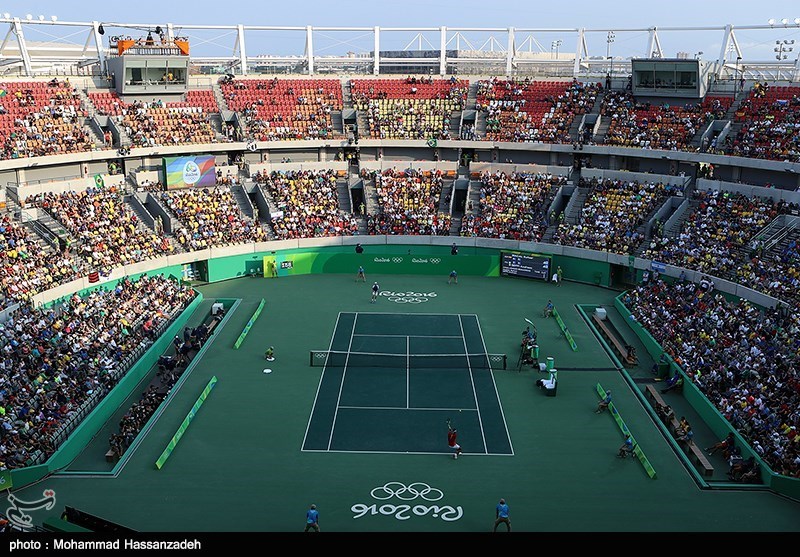There is a chance that players could earn ranking points at future Olympic Games, according to the International Tennis Federation (ITF).
Earlier this week the ITF announced two key changes to the Olympic competition that will come into effect at next year’s Tokyo Games. The men’s final has been shortened to a best-of-three set match to keep it in line with the other rounds. Breaking away with tradition. The gold medal match had always been a best-of-five encounter since the sport was reintroduced back into the Olympics in 1988. Meanwhile, in the doubles the final set will be replaced by a 10-point tiebreaker.
The changes have come into effect following ‘issues of a congested schedule’ that were raised during the 2016 Rio Olympics. During the decision making process, feedback was generated from players on the tour and former Olympians.
“The decision was taken bearing in mind that the Olympic Tennis Event takes place over nine days and a number of players have indicated their desire to compete in all three events – singles, doubles and mixed doubles – for the opportunity to win three medals.” The ITF told Ubitennis.
“The decision aligns all matches for a single consistent format for the Olympic Tennis Event, and addresses overplay for those players who play all three events. The ITF’s decision-making process that led to changes in the Olympic Tennis Event format included gathering feedback from players, former Olympians, tournament directors and officials.’
“Taking this feedback into consideration, the ITF Olympic Committee presented a motion to the ITF Board for review and approval. These changes are designed for consistency, player welfare and to ensure players can achieve their goals as they compete for their nation in the largest and most iconic multi-sport event in the world.”
The revamp has generated a mixed response from the world of tennis with many fans criticising the move to shorten matches. It is not the first time the ITF has done away with the best-of-five format. The same has been done with the Davis Cup finals, which from this year feature 18 teams participating over in a week-long competition.
“We understand that change is not always easy and we respect people’s opinions. We expected there would be a reaction – positive and negative.” The governing body said.
The future
One change that has failed to occur is awarding ranking points to those who participate in the tournament. A move some believe will help attract more top players to the event. During Rio 2016 Novak Djokovic called for points to be rewarded to those participating in ‘arguably the fifth Grand Slam.’ Meanwhile Latvia’s Ernests Gulbis once told The New York Times ‘I really don’t like that in Olympic Games there is no points and no prize money. It’s a little bit like tennis tourism.”
The reason why no points are given is because the ITF is separate to that of the ATP and WTA. Therefore, they have no control over the allocation of points. However, it is possible that an agreement could be achieved one day between all three.
“Currently, the WTA and ATP do not award points for the Olympic Qualification Pathway. We (the ITF) are always open to discussion on the matter.”
Perhaps even more debatable is the current Olympic eligibility criteria. A system that is based on a player’s commitment to their country’s Fed or Davis Cup ties. In order to be eligible, players must participate in three ties during an Olympic cycle. This is reduced to two ties depending on the length of service or the zone group round robin criteria as specified in the eligibility rule.
It is unlikely that the ITF would want to change this policy. For them, it is their top leverage used to attract players to participate in the team tournaments. Especially the Davis Cup, which has gone through a highly controversial revamp. When questioned if they would change the rule in the future, the ITF declined to give a yes or no answer.
“National Olympic Committees wishing to nominate a player who has not yet met the minimum requirement has the right to appeal.” They state. “Each case is specific, but will be considered based on a combination of factors, such as, the depth of the player field available to play for their country, injuries, history and Davis Cup / Fed Cup / Olympic competition record.”
The 2020 Olympic Tennis tournament in Tokyo will take place from July 25th.
Who won medals at the 2016 Games?
| Event | Gold | Silver | Bronze | |||
|---|---|---|---|---|---|---|
| Men’s singles | Great Britain (GBR) Andy Murray |
Argentina (ARG) Juan Martín del Potro |
Japan (JPA) Kei Nishikori |
|||
| Men’s doubles | Spain (ESP) Marc López Rafael Nadal |
Romania (ROU) Florin Mergea Horia Tecău |
United States (USA) Steve Johnson Jack Sock |
|||
| Women’s singles | Puerto Rico (PUR) Monica Puig |
Germany (GER) Angelique Kerber |
Czech Republic (CZE) Petra Kvitová |
|||
| Women’s doubles | Russia (RUS) Ekaterina Makarova Elena Vesnina |
Switzerland (SUI) Timea Bacsinszky Martina Hingis |
Czech Republic (CZE) Lucie Šafářová Barbora Strýcová |
|||
| Mixed doubles | United States (USA) Bethanie Mattek-Sands Jack Sock |
United States (USA) Venus Williams Rajeev Ram |
Czech Republic (CZE) Lucie Hradecká Radek Stepanek |
|||






